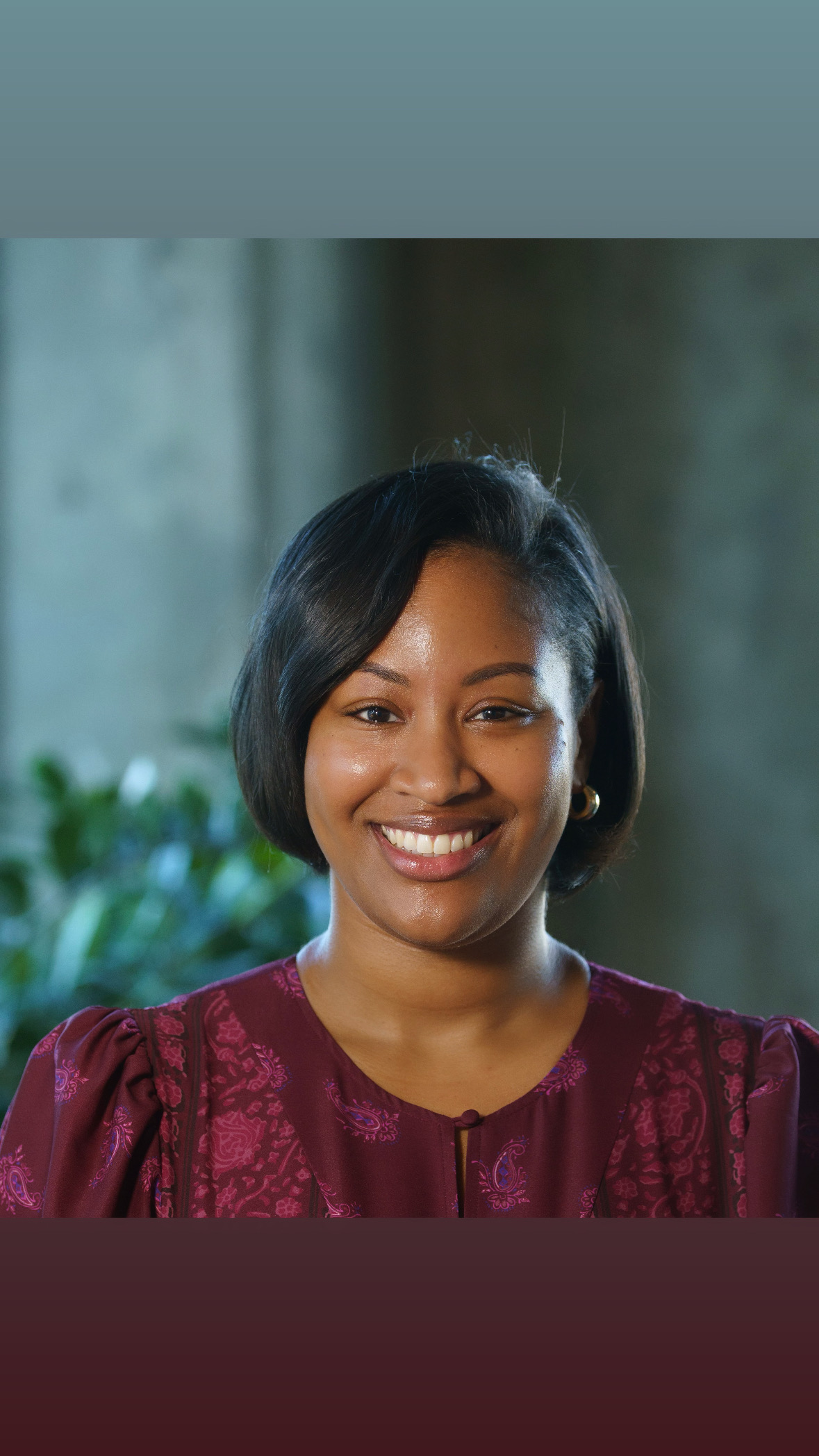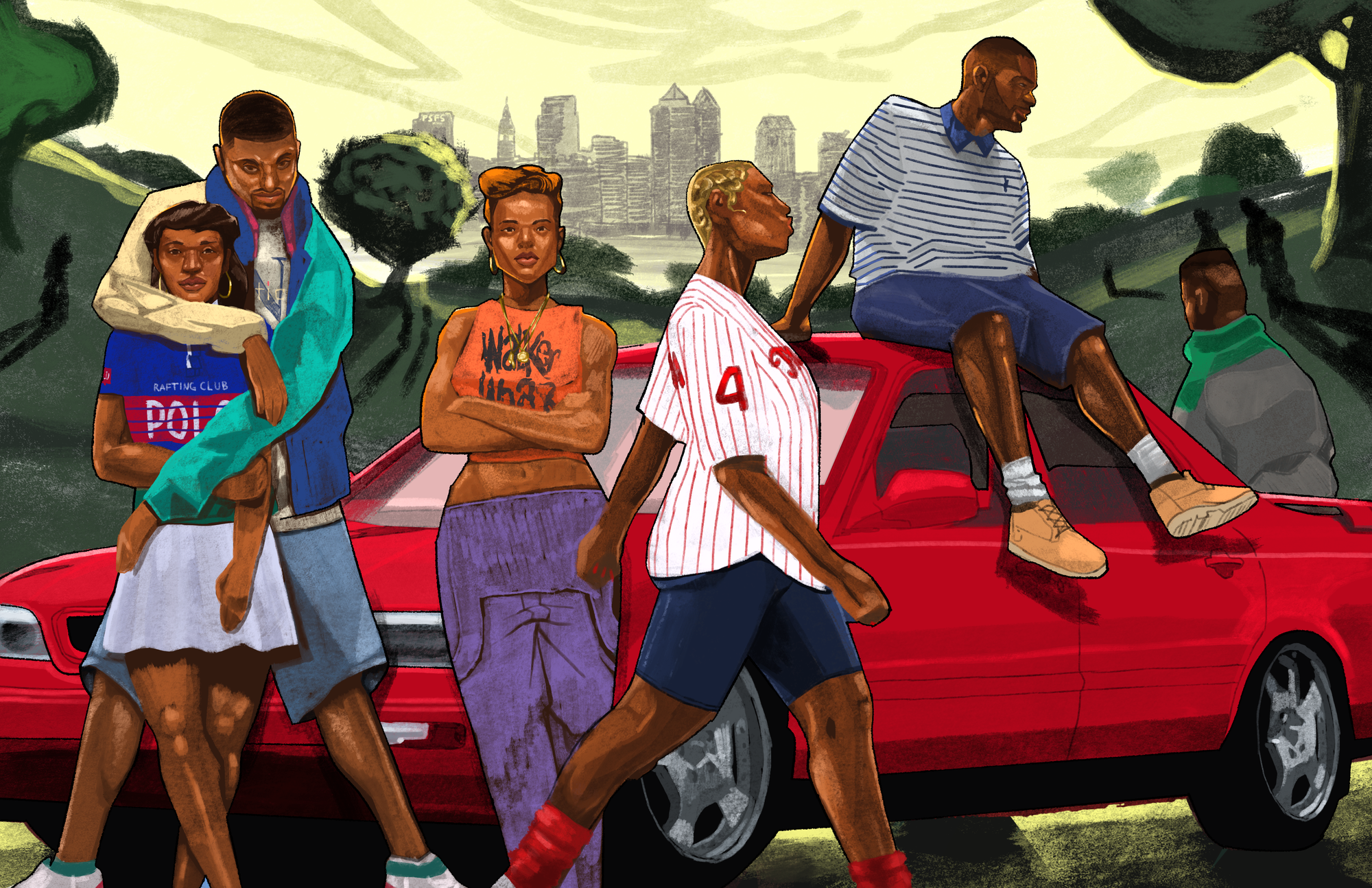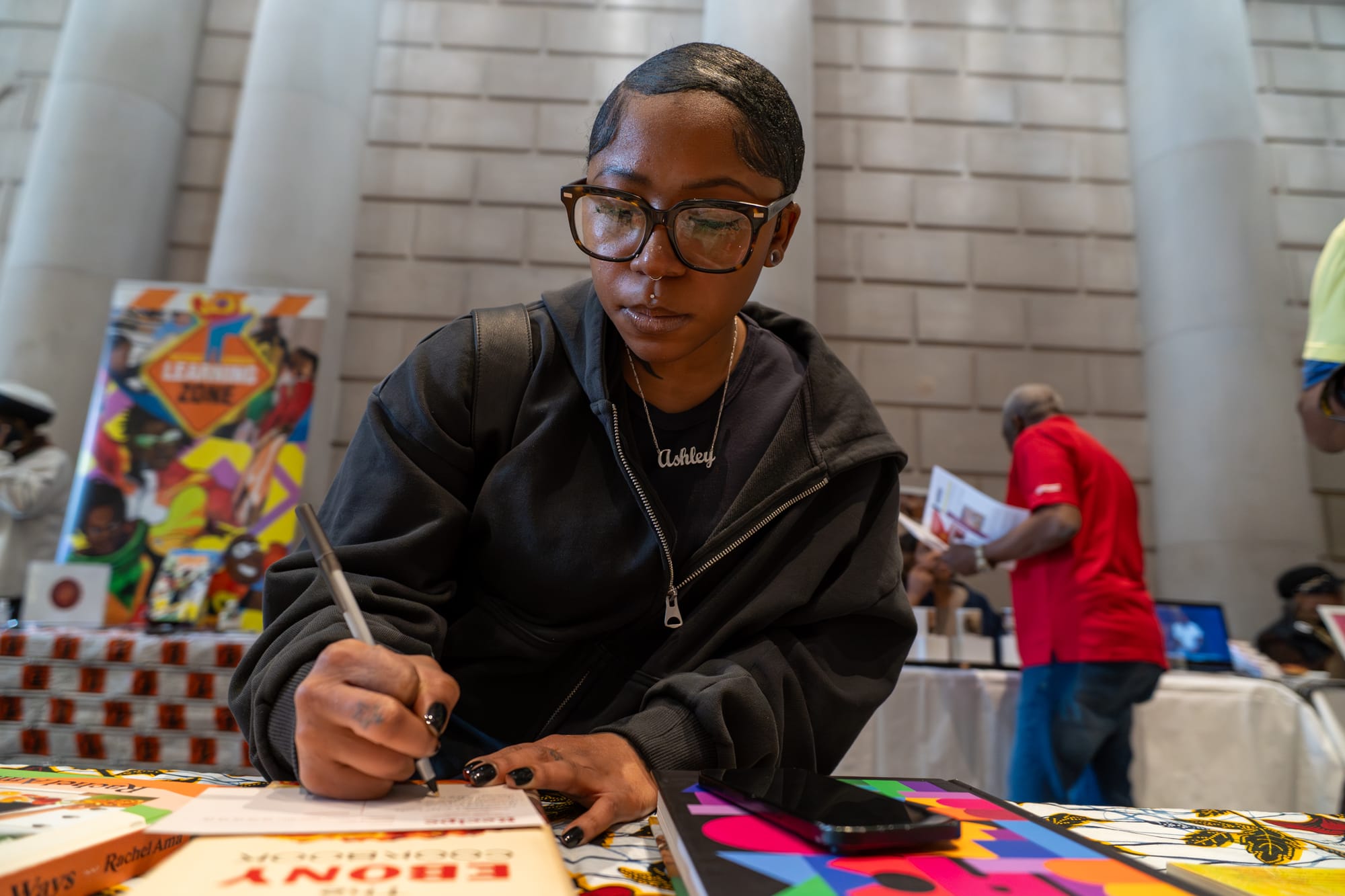Ireshadahoodtherapist’s Iresha Picot Wants Both Therapy And Biking Accessible For All
Meet Iresha Picot - a mental health professional, community builder, and cyclist preparing for her first 50-mile competitive bike race.
Meet Iresha Picot - a mental health professional, community builder, and cyclist preparing for her first 50-mile competitive bike race. Known as "Ireshadahoodtherapist," she's bringing therapy to the people while breaking barriers in both mental health and cycling communities in Philadelphia. From providing therapy to incarcerated individuals to leading inclusive bike rides, Picot shows how movement and mental health can transform our lives and our communities.
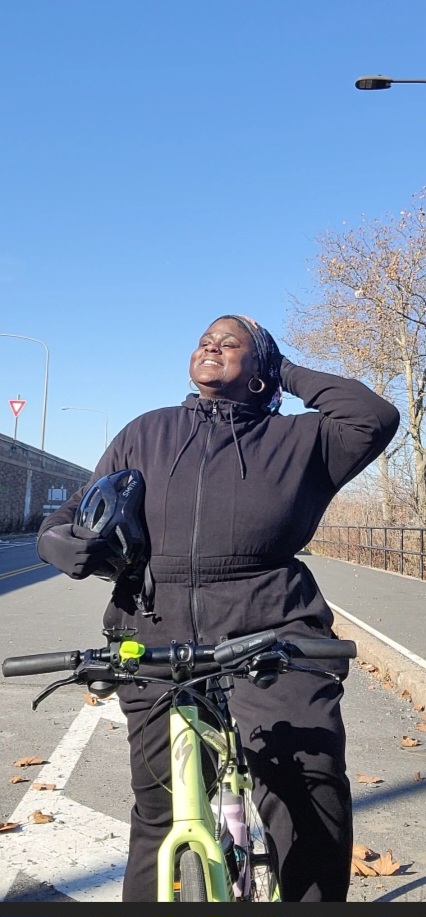
Iresha Picot: My name is Aisha Picot from Franklin, Virginia, but I've currently been living in Philly for 17 years. I am a mental health professional, a licensed behavior specialist, and therapist, and I also provide therapy to people who are incarcerated and healing justice support with the Me Too Movement.
Desirée: You're known as "da hood therapist" - can you unpack what that title means to you and your approach to mental health?
Iresha Picot: I call myself Ireshadahood therapist..{emphasis on the} DA. It just means you can get therapy anywhere. Therapy should be to the people.
Desirée: Can you tell us about your roots? Where did you grow up, and how has your upbringing shaped your path?
Iresha: I grew up in a rural area in Virginia and my mother was a commuter cyclist. She was born and raised in DC so she rode bikes. She never learned how to drive, so biking was her way to get around. So I think, I don't know, that's something powerful to see a black woman riding a bike and using a bike in a way in which I didn't really see any other people. But when I came to Philly, I rode a bike for a little while as a commuter biker. Someone stole my bike and I didn't get on a bike for a decade.
When the pandemic started, I started riding Indego bikes…and then I started Black Girl Joy bike ride, we use Indego bikes to bring black women together to do gentle bike riding. And then I went to the Philly Bike Expo earlier this year, and while I was there, these folks {Philly Devo} came up to me and were like, “Hey, we have a bike camp, one road cyclist, one mountain biking!”. And I don’t know, I was about to turn 40 and I wanted to do something that's going to take me out of my comfort zone. Because as we get older, you do less things outside of your comfort zone. Something in me was like, “Girl sign up for the mountain bike”. I've never ridden a mountain bike in my life!
And so I signed up and got accepted to the six-week mountain bike program. And it was hard. It was very hard. It humbled me in a lot of ways. I realized up until that point, I was just doing a lot of things good and a lot of things efficient, but I wasn't always doing a lot of things that were new. And they were so helpful to me. They really taught me so many skills. They mentored me and that kind of propelled me to want to continue to do more endurance bike riding. I heard about All Bodies on Bikes because one of the mentors from Philly Devo sent it to me. They {All Bodies on Bikes} wanted to put an all-inclusive gravel team together of different body types and they were going to give the same mentorship along the way. And so…I applied, I made a video for it, I got accepted, and then I just started training.
Desirée: What has your training experience been like? And where do you go?
Iresha: My training experience at first, it started out just doing more rides. I realized I’m going to be on a bike between 5-7 hours for 50 miles. So I just needed to start it to get on the bike every day for a little bit. So sometimes it was 30 minutes, sometimes it was an hour, now I'm biking up to three hours at a time. So it was just taking those little baby steps and doing more and more and kind of piecing it all together. I bike a lot on the SRT {Schuylkill River Trail}. It's helping me to increase my speed because it's flat. But I bike at John John Heinz, which is a gravel bike trail. I go to Bartram {Batram Mile} to practice muscle endurance going up hills, but I try to make sure I do a little cycling every day.
Desirée: When is the race and do you feel prepared?
Iresha: I am very excited for Mid South. The race is in Oklahoma {on} the second weekend in March, and I'm excited, but I'm also a bit nervous. I think anything that's new you feel nervous about. I've never been on a bike for that long and with so many people. But I tell myself because I'm cycling in the cold sometimes it's 20-30 degrees. I just tell myself and affirm to myself that I could do this, right? I could do this. I always feel like the universe puts me where I'm supposed to be and it wants me to do this. So even when my fingertips and my toes are cold, I'm like, you can do this. You got this, you got a team, you got people supporting you. So I feel like I'm getting ready for it, but I feel like by the time March comes, I will be ready.
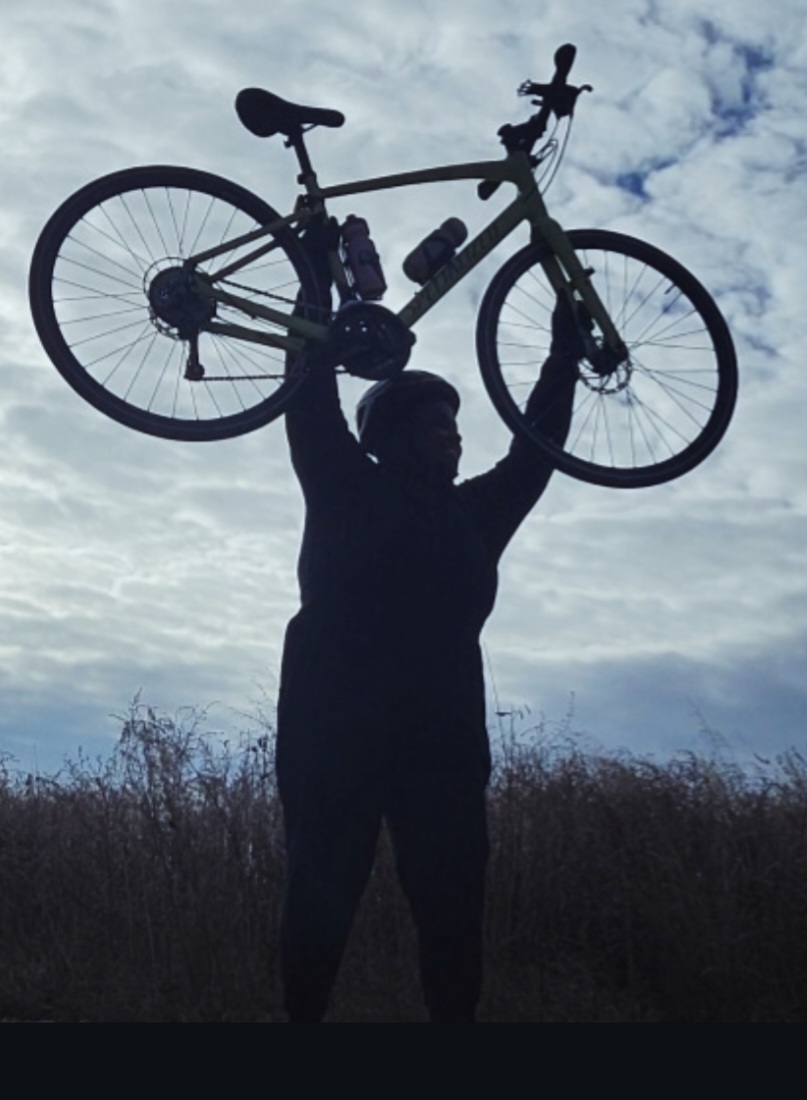
Desirée: What transformative potential do you see in community-driven athletic and wellness initiatives?
Iresha: I wish {cycling communities} would be more inclusive of all types. People who want to go at a slower pace, people who want to be more competitive, but we could all be doing this together. That's how you build community. That's something I try to promote with Black Girl Joy Bike Ride. All you have to do with Black Girl Joy bike ride is know how to ride a bike. You are going to have your faster people in the front. You are going to have your slower people in the back, but nobody is ever left behind. We're going to get to our destination and we're going to finish the ride together.
A big proponent, being a mental health professional, mental health advocate, I would love to see just more movement be tied to the things that make us feel good. It's not always about a race. It's not always about finishing first or finishing fast, but when you finish, do you feel great? Do you feel good?
In therapy, we always say “All is mental”.. And I'm kind of taking that approach to this race. Yeah, it's a physical race, but at the end of the day, it's all mental. It is all me telling myself that I could do this. It's all of me actually being motivated and being consistent in my training to get there. So all is mental, we got this.
Resources
The Ladipo Group“This group of therapists proudly serves the Black and African-American community with couples, individual, and family therapy services. They know, and research supports, that working with someone who truly understands your culture and unique experiences is the foundation for successful therapy and counseling.”
Therapy for Black Girls“Here you will find a national directory of providers with a complete description of the services offered, areas of expertise, and contact information.”
Oshun Family Center“Oshun Family Center provides racially concordant care to members of the Black community who are struggling to cope with life transitions. Especially those impacted by postpartum mood changes, birth, and racial trauma. They center the experiences of Black people and create a welcoming space for healing and refuge.”
National Queer and Trans Therapists of Color Network“National Queer and Trans Therapists of Color Network (NQTTCN) is a healing justice organization committed to transforming mental health for queer and trans people of color (QTPoC).”
Relinquish & Transcend Counseling & Consulting“With a focus on personalized care, their team integrates trauma-informed therapy, ecotherapy, and mindfulness to nurture emotional resilience. Their diverse specialists offer comprehensive support, including LGBTQ+ affirmative therapy and culturally responsive care through individual sessions, workshops, and consultations.”Two Bala Plaza Suite 300 – PMB#703Bala Cynwyd, PA, US 19004Phone: 215-422-3291
African Cultural Alliance of North America Inc (ACANA)“ACANA provides culturally sensitive social services, cultural programs, economic and workforce development programs, community engagement and development programs, and other services targeting mainly African and Caribbean immigrants in the United States.”5530 Chester AvenuePhiladelphia, Pa. 19143Phone: 215-729-8225
Coalition of African and Caribbean Communities – Philadelphia (AFRICOM)“AFRICOM empowers African and Caribbean communities in the greater Philadelphia area. Services include facilitating access to health and social services, education programming, promoting economic development, and immigration legal assistance. AFRICOM also advocates on issues of concern to the community and educates the public on African and Caribbean cultures.”6328 Paschall Ave, Suite APhiladelphia, Pa. 19142Phone: 215-787-1302
Soul Yoga Philly“Holistic Wellness Services for BIPOC. Soul Yoga Philly specializes in providing mental and physical wellness service to the BIPOC community. Soul Yoga Philly offers yoga classes, mental health counseling, and mental health consultations.”
“Therapy In Color is the online mental health directory that helps Black, Indigenous, and People of Color find a therapist or mental health provider that identifies as a BIPOC therapist, life coach, or mental health provider. Therapy In Color is the answer to the problem BIPOC were facing when scrolling through large mental health directories trying to find familiar faces committed to the decolonization of mental healthcare.
Therapy In Color offers a comprehensive directory profile to connect you with the community, manage your online presence, grow your practice, and more.”
BEAM: Black Emotional and Mental Health Collective
“BEAM is a national training, movement building, and grant making institution that is dedicated to the healing, wellness, and liberation of Black and marginalized communities.”
“Black Girls Smile Inc. was founded in 2012 with the mission to empower the mental health and well-being of young Black women and girls through culturally and gender-responsive educational programming, support initiatives, and resource connections.”
